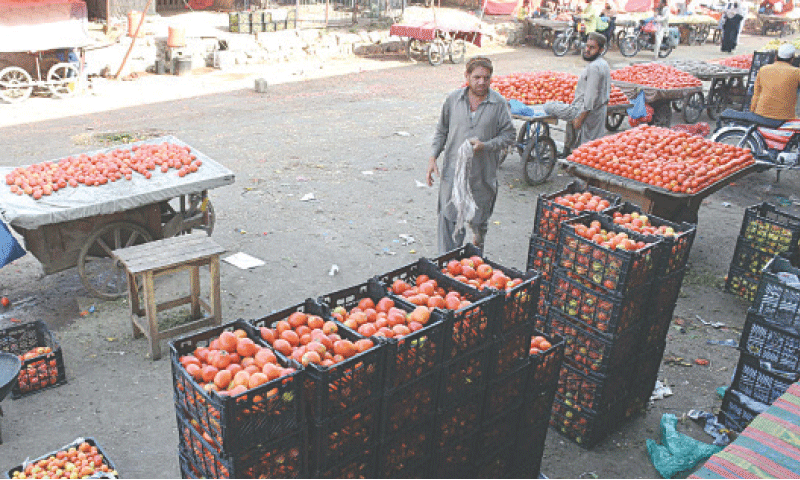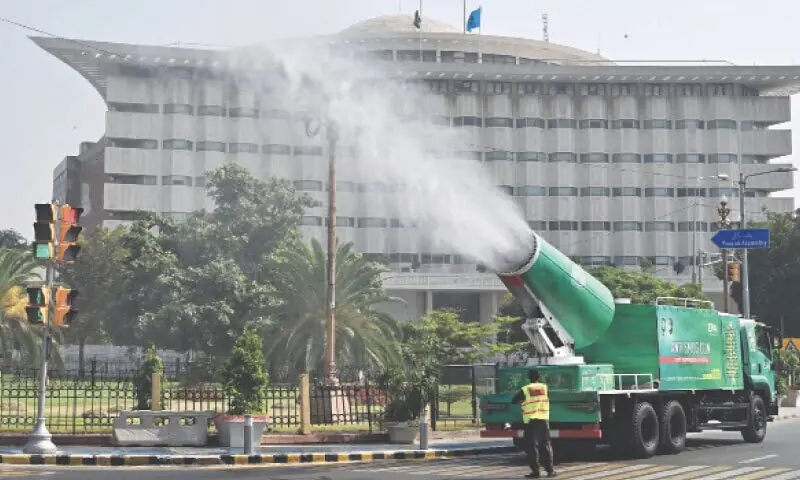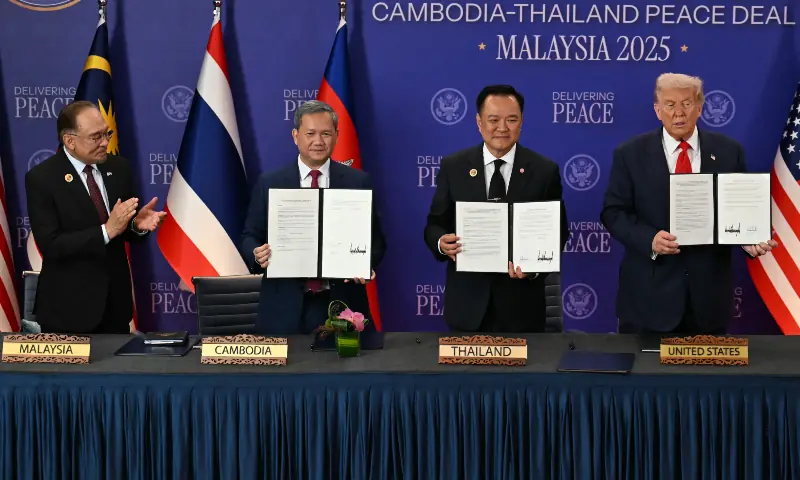RAWALPINDI: Tomato prices have risen in local markets, selling at Rs 370-400 per kilogram, as traders attribute the rise to floods in Punjab and the closure of the Pakistan-Afghanistan border.
However, they hope the situation will improve with the arrival of supplies from Swat and Sindh in the coming days.
“Though the price of tomatoes has come down slightly from Rs 600 to Rs 370-400 per kg, it is still unaffordable for the common man as it is a daily use item,” Rawalpindi Fruit and Vegetable Market Association President Ghulam Qadir Mir said while talking to Sunrise.
Explaining the reasons behind the price rise, he said floods during the monsoon season, closure of the Pakistan-Afghanistan border and the government’s negligence in bridging the gap between supply and demand were the main factors.
He added that most of the tomato supply usually comes from Central Asia and Afghanistan, but border tensions have disrupted trade. Meanwhile, local supplies from Punjab were also affected due to floods.
“Iranian tomatoes have arrived on the market, but in limited quantities. In the last two days, some supplies have arrived from Swat and Sindh, and we expect the gap between supply and demand to narrow, stabilizing prices next week,” he said.
Mir urged the government to take immediate steps to import tomatoes and stabilize prices.
A senior official of the Punjab Agriculture Department said that the shortage of tomatoes usually starts in the winter season.
However, the Punjab government last year launched a project to grow tomatoes out of season in some parts of the province.
He added that the devastating floods destroyed many of these areas, but farmers were expected to resume cultivation soon.
Meanwhile, the district administration has not enforced the official price list issued by the District Market Committee as food items are sold at inflated prices across the garrison city.
Price magistrates and other concerned departments seem helpless in implementing the directives.
According to market data, tomatoes are sold at Rs 370-400 per kg, against the official price of Rs 180 per kg. Ginger is available at Rs 600 per kg (official rate of Rs 520), garlic at Rs 380 per kg (official rate of Rs 350), potatoes at Rs 90 per kg (official rate of Rs 78), onions at Rs 95 per kg (official rate of Rs 88), eggs at Rs 350 per dozen (official rate Rs 333) and chicken at Rs 350 per kg (official rate Rs 313).
Residents of Rawalpindi have expressed their anger over the rampant price rise, particularly of tomatoes.
“The traders are overcharging and no one is stopping them. Who can afford to buy tomatoes at Rs 370-400 per kg? Most people have stopped buying them,” said Niaz Ahmed, a resident of Mohanpura.
Muhammad Ayaz, a resident of Gawalmandi, said the district administration had failed to control food prices. “People have difficulty buying sugar, wheat, meat, vegetables and lentils,” he said.
He lamented that the income of the common man has not increased for years, while the prices of essential commodities have multiplied. “There is no one in the government to control this inflation,” he said.
Abrar Ahmed, a resident of Dhoke Khabba, said managing the family budget has become almost impossible. “With limited income, we can no longer support inflation. Now I work two jobs just to make ends meet,” he said.
Traders, however, defended themselves saying that they too were affected by high wholesale prices. “We buy products at higher prices in the wholesale market, so it is impossible to sell them at a low price,” said a trader.
Published in Dawn, October 26, 2025








